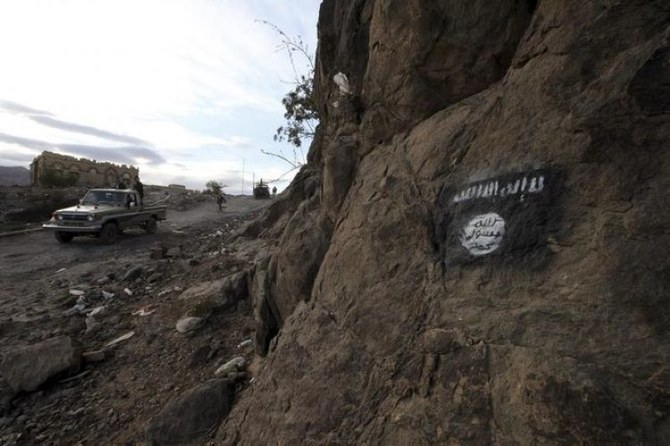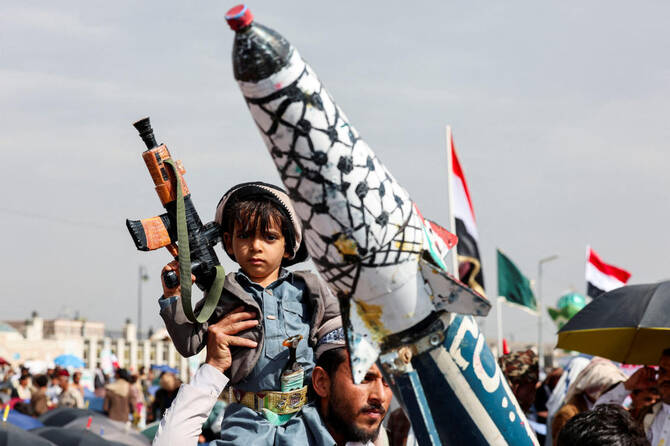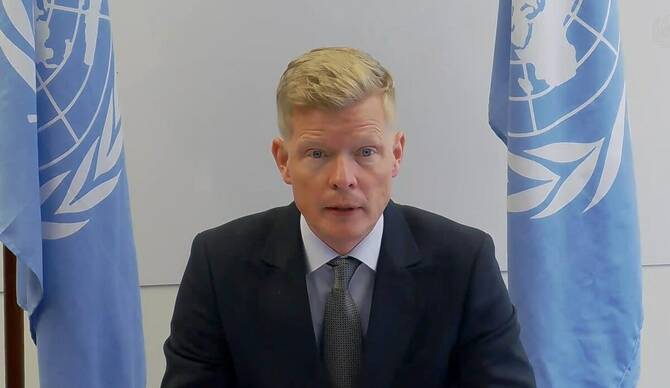AL-MUKALLA: The Iran-backed Houthis in Yemen have admitted trading Al-Qaeda prisoners for their own captured fighters. It was a rare admission by the group, which has long denied freeing militants.
It came a day after Rashad Al-Alimi, the chairman of Yemen’s Presidential Leadership Council, accused the Houthis of releasing Al-Qaeda militants, arming them and sending them to attack Yemeni government troops.
Abdulkader Al-Murtada, head of the Houthis’ prisoner exchange committee, said on Sunday that they traded two Al-Qaeda terrorists, purportedly captured on the battlefields of Al-Bayda province, for three of the militia’s fighters.
The previous day, Al-Qaeda said it had exchanged two Houthis for two of its militants, identified by their jihadist names Al-Qaqa Al-Bayhani and Muwahid Al-Baydani, according to SITE Intelligence Group, an American organization that monitors Al-Qaeda statements.
Observers of the conflict in Yemen believe that the Houthis, who usually keep their prisoner exchanges with Al-Qaeda secret, were compelled to acknowledge this one after a third party revealed the details.
Ali Al-Fakih, the editor of Al-Masdar Online, told Arab News that the Houthis attempted to legitimize the exchange by claiming that Al-Qaeda is a belligerent party supporting the Yemeni government.
“This is one of the most secret Houthi files,” said Al-Fakih.
Similar deals have happened previously, he added, but it seems a middleman disclosed information about this latest one. The Houthis therefore reluctantly confirmed the prisoner swap but attempted to make it seem like it was with with a recognized entity that supports “aggression,” he said.
President Al-Alimi, speaking at the Munich Security Conference on Saturday, said the Houthis have not only released Al-Qaeda and Daesh prisoners held by Yemeni security agencies on terrorism charges but have armed them and sent them to attack military and security targets in government-controlled areas. He added that the Yemeni government has informed security forces in neighboring countries, and the wider international community, about the Houthi collusion with Al-Qaeda.
“There is known collaboration between Houthi terrorists, Al-Qaeda and Daesh,” Al-Alimi said. “They freed all Daesh and Al-Qaeda inmates and convicts, provided them with weapons and equipment, and sent them to regions controlled by the legitimate government to carry out terrorist operations.”
The Houthi acknowledgment of the prisoner exchange came days after Al-Qaeda in Yemen confirmed the deaths of Hussein Hadboul, also known as Hassan Al-Hadrami, and his brother Muhed in a US drone attack in Yemen’s central Marib province.
The group seemed to be referring to a US drone attack on a vehicle on Jan. 30 that killed three Al-Qaeda terrorists.
Yemeni security officials and terrorist experts identified Hadboul as an Al-Qaeda bomb-maker, responsible for the manufacture of improvised explosive devices that had killed a number of Yemeni security and military personnel.
A local security officer in the southeastern Hadramout region told Arab News Hadboul came to their attention some years ago when a woman was caught while attempting to plant an explosive device at a security facility in the southern port city of Sheher.
After questioning the woman and tracking the explosives used in the bomb, authorities determined that Hadboul assembled devices in Marib and smuggled them into Hadramout using women, who are not searched at security checkpoints.
“This is a key Al-Qaeda bomb-maker who manufactured several explosive devices and smuggled them to Hadramout, using women, for use in terrorist strikes,” said the security official, who asked not to be named.
However, the official added that Hadboul’s death is unlikely to end Al-Qaeda’s use of IEDs and other bombs because “he has trained a new generation of bomb-makers.”






















